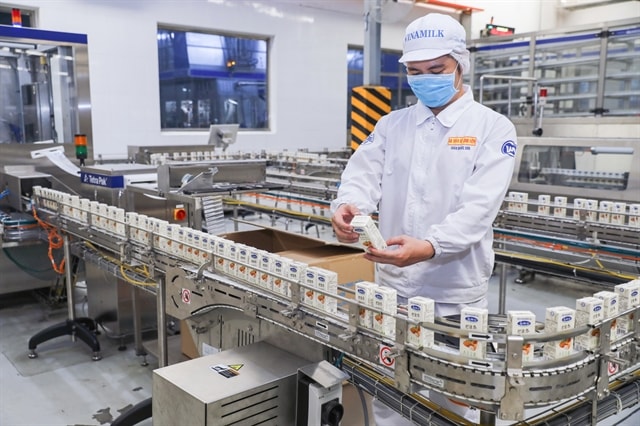Digital technology transforms Vietnam’s food industry
Amidst robust digital transformation across all sectors, the food processing industry has tapped such digital technologies as Internet of Things, AI, blockchain and Big Data to optimise production process, control supply chain, and meet consumers’ demands.

Over the recent past, many enterprises have embraced advanced solutions to modernise manufacturing and strengthen competitiveness.
A prime example is Vinamilk, which has invested in Industry 4.0 technology to track data around the clock, ensuring cattle health, high milk yield, and quality control. Each cow is fitted with an electronic chip to monitor its health, reproductive cycle, and a diet specially tailed to its age group.
At TH Food Chain Joint Stock Company, a traceability system has been put in place from farm to table with barcode and QR code technology applied across its products, providing consumers with easy access to detailed information about the milk’s origin, production process, and quality standards.
Modern equipment system has been invested at Nutifood Nutrition Food Joint Stock Company to meet stringent requirements of its production process, notably Aseptic technology having been used to prevent bacteria from entering during production, ensuring minimal loss of product quality and nutritional value.
According to Dang Tran Tho from Hanoi University of Science and Technology, food processing technology applications have progressed significantly, yielding remarkable results in improving product quality and enhancing value in the supply chain. Yet, challenges remain, he said, elaborating enterprises face shortages of capital for digital investment and workers proficient in digital technologies.
To address these issues, Ly Kim Chi, Chairwoman of the Food and Foodstuff Association of Ho Chi Minh City (FFA), advocated for strong investment in production line, automation, digitalisation in management, and research and development activities. She called for the State’s credit incentives to support businesses’ investment as well as completion of legal frameworks regarding food safety, technical standards, and product traceability requirements.
Developing digital infrastructure is crucial, creating a foundation for digital transformation for the whole sector, she stated, suggesting the State arrange trade promotion events together with technology renewal programmes, helping enterprises expand their international markets.
